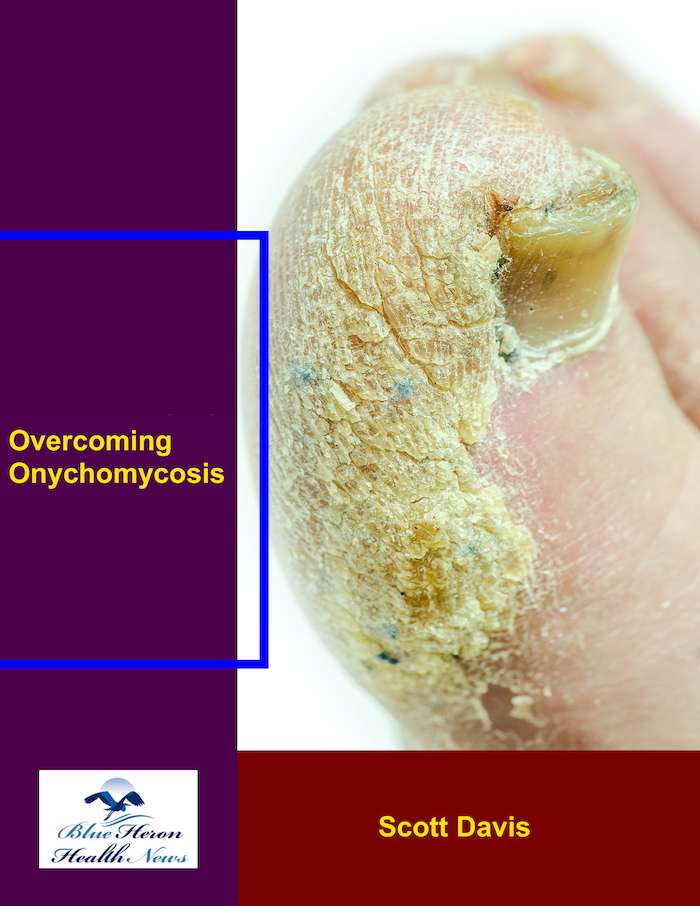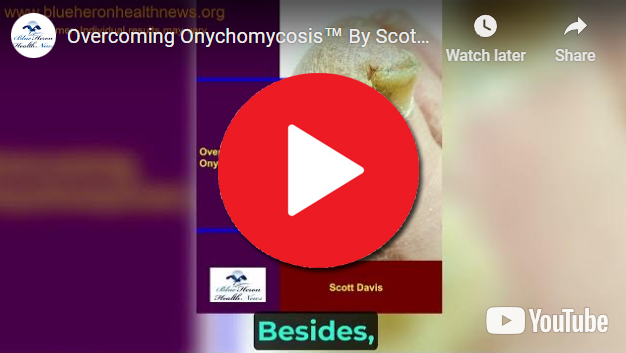
Overcoming Onychomycosis™ By Scott Davis It is a simple, natural, and all-in-one solution for onychomycosis. The program can help you to treat your nail fungus naturally. Once you follow this program, you do not need to spend on expensive treatments to prevent a recurrence. In brief, you can have a proven solution for your chronic nail fungus. Besides, the program is easy to follow, and most users find it effective against onychomycosis.
What is the connection between acid reflux and sinus problems?
There is a recognized connection between acid reflux (gastroesophageal reflux disease, GERD) and sinus problems, often referred to as acid reflux-related sinusitis or laryngopharyngeal reflux (LPR). The connection primarily involves the following mechanisms:
1. Laryngopharyngeal Reflux (LPR) and Sinusitis
- LPR occurs when stomach acid travels up into the esophagus and reaches the throat and voice box (larynx). Unlike GERD, which primarily causes heartburn, LPR can lead to more subtle symptoms like throat clearing, hoarseness, and a sensation of a lump in the throat.
- The acid can irritate the upper airway and sinuses, leading to inflammation and congestion in the nasal passages. This can result in sinus symptoms, such as a runny nose, post-nasal drip, and sinus pressure.
2. Post-Nasal Drip
- One of the most common symptoms of both acid reflux and sinus problems is post-nasal drip, where mucus from the sinuses drips down the back of the throat. Acid reflux can worsen this condition by causing irritation in the throat, which can make mucus thicker and more difficult to clear.
- As acid from the stomach irritates the throat and airways, it can lead to an increased production of mucus. This, in turn, may contribute to nasal congestion and sinus issues.
3. Sinus Inflammation and Airway Swelling
- Chronic acid exposure from GERD or LPR can lead to inflammation in the throat and the surrounding areas, including the sinuses. The sinuses may become more prone to infection and swelling, as the protective mucosal lining is compromised.
- The inflammation caused by acid reflux may exacerbate existing sinus problems, leading to a cycle of ongoing sinus congestion, pressure, and discomfort.
4. Shared Triggers
- Certain factors that trigger acid reflux, such as lying down after eating, eating large meals, or consuming certain foods (e.g., citrus, spicy foods, chocolate), can also trigger or worsen sinus problems. This may be particularly relevant in people who suffer from both conditions.
5. Impact on Breathing
- Acid reflux can irritate the airways, leading to symptoms like coughing and throat clearing. This irritation may cause further breathing difficulties, which can overlap with symptoms of sinus congestion and post-nasal drip.
- In some cases, people with acid reflux may also experience asthma-like symptoms (reactive airway disease), which can further worsen sinus problems and create a complex symptom overlap.
6. Treatment Overlap
- Treating acid reflux: When acid reflux is treated with medications such as proton pump inhibitors (PPIs), H2 blockers, or antacids, it can help reduce inflammation in the throat and sinuses, providing relief from both reflux and sinus symptoms.
- Sinus treatment: Similarly, treating sinusitis with nasal decongestants, saline sprays, or antihistamines may help improve sinus congestion but may not fully resolve the underlying acid reflux contributing to the sinus issues.
In Summary:
The connection between acid reflux and sinus problems is primarily due to the irritative effects of stomach acid on the upper airways, including the sinuses and throat. This can lead to symptoms like post-nasal drip, sinus congestion, and inflammation. Managing acid reflux through lifestyle changes and medications may help alleviate sinus issues, while addressing sinus problems can help reduce symptoms related to reflux.
Acid reflux, specifically laryngopharyngeal reflux (LPR), can cause various throat problems by allowing stomach acid to travel up the esophagus and into the throat (larynx) and voice box. Unlike gastroesophageal reflux disease (GERD), which primarily causes heartburn and affects the lower esophagus, LPR affects the upper parts of the digestive tract, leading to throat-related symptoms. Here’s how acid reflux can cause throat problems:
1. Irritation of the Throat and Larynx
- Acid Exposure: When stomach acid rises into the throat, it irritates the mucosal lining of the larynx (voice box), throat, and the upper part of the esophagus. This can lead to inflammation, causing discomfort, soreness, and pain in the throat.
- Hoarseness: One of the most common symptoms of LPR is hoarseness, which occurs because the acid irritates the vocal cords. This can make the voice sound raspy, weak, or strained, especially in the morning or after eating.
2. Chronic Throat Clearing
- Post-Nasal Drip: Acid reflux can lead to increased mucus production in the throat, resulting in post-nasal drip. This excess mucus drips down the back of the throat, leading to a constant sensation of needing to clear the throat.
- Irritation and Coughing: The irritation caused by reflux may trigger a chronic cough or an urge to clear the throat frequently. This reflex occurs as the body tries to clear the airway of the irritant (stomach acid).
3. Sensation of a Lump in the Throat (Globus Pharyngeus)
- Lump in the Throat: Some people with acid reflux experience the sensation of having a lump in the throat, known as globus pharyngeus. This feeling can be caused by acid irritating the muscles and tissues in the throat, making them feel tight or constricted.
- Difficulty Swallowing: This sensation can sometimes make swallowing difficult, as the person may feel as though food or liquid is getting stuck in the throat.
4. Chronic Sore Throat
- Ongoing Irritation: Frequent acid reflux episodes can lead to a chronic sore throat, where the lining of the throat becomes persistently inflamed. This inflammation can make the throat feel dry, scratchy, or raw, particularly in the morning after lying down overnight.
5. Laryngitis
- Infection and Inflammation: The acid can also cause laryngitis, which is inflammation of the voice box. This condition can lead to persistent hoarseness, loss of voice, and discomfort while speaking or swallowing.
- Increased Risk of Infection: In some cases, the irritation caused by reflux can make the throat more vulnerable to infections, which may contribute to throat pain or discomfort.
6. Increased Sensitivity of Throat Muscles
- Hyperresponsiveness: Repeated acid exposure can cause the muscles in the throat to become more sensitive, leading to a heightened reflex response to irritation. This can make the throat more susceptible to pain or discomfort from even small amounts of acid.
7. Changes in Taste and Bad Breath
- Acidic Taste: The acid that enters the throat may cause a sour or bitter taste in the mouth, which can contribute to a feeling of discomfort in the throat.
- Halitosis: Acid reflux may also cause bad breath (halitosis) due to the stomach acid being in the mouth or throat, which can lead to a foul odor.
8. Aspiration of Acid into the Airway
- Aspiration: In more severe cases, acid can be aspirated into the airway (windpipe), causing inflammation in the lungs or triggering asthma-like symptoms such as wheezing, shortness of breath, and coughing. This can further exacerbate throat irritation and lead to respiratory problems.
In Summary:
Acid reflux can cause throat problems by irritating the tissues and muscles in the throat, leading to symptoms like hoarseness, chronic throat clearing, a lump in the throat, sore throat, laryngitis, and bad breath. These symptoms occur due to the backflow of stomach acid, which inflames the upper airway and voice box. Managing acid reflux through lifestyle changes (such as avoiding trigger foods), medications (such as proton pump inhibitors or H2 blockers), and possibly surgical interventions can help alleviate these throat issues.
Overcoming Onychomycosis™ By Scott Davis It is a simple, natural, and all-in-one solution for onychomycosis. The program can help you to treat your nail fungus naturally. Once you follow this program, you do not need to spend on expensive treatments to prevent a recurrence. In brief, you can have a proven solution for your chronic nail fungus. Besides, the program is easy to follow, and most users find it effective against onychomycosis.
